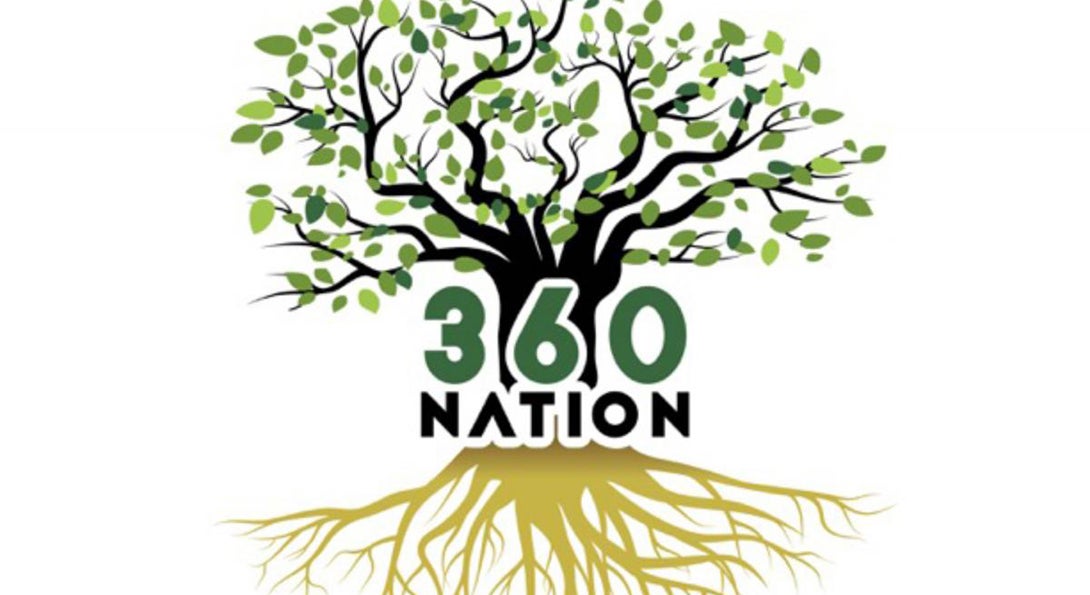Restorative Healing Addresses Urban Black Trauma

Trauma in America’s urban communities is practically a given—a passing glance at the evening news confirms that notion. What trauma means is up for debate, argues Danton Floyd, MEd Youth Development ‘13. The history and context of trauma resonates uniquely for America’s Black communities. And if that is true, Black communities logically use unique restorative practices to heal from trauma. But Floyd doubts Chicago’s entrenched institutions are set up to foster restorative healing in ways rooted in Black community culture.
Addressing that gap is the impetus behind a new vision of space for youth that promotes deep exploration of identity and the building of stronger relationships. Floyd has launched a non-profit through a Dean’s Community Engagement Project grant dubbed “360 Nation: For the Positive Development of Black People.” Floyd hopes to equip Black youth with the tools for them to explore and expand their identity in their world while also understanding how the world identifies with them.
“How can folks hold on to their identity and not have to compromise it and still thrive at the same time?” Floyd said. “To look and to speak like a successful person within the society we live in, it’s in a certain box, it’s a very oppressive box. Our question is, how do we get young folks and people in general to think outside that box?”
The organization uses relationship building and social capital to promote empowerment in the Black community through four components:
-restorative life skills through social and emotional learning
-cultural awareness
-leadership development
-identity exploration and formation
These four areas are developed through performance art lessons and practices, what Floyd calls “theater of the oppressed” that blurs class lines, and in visual arts skills, in which youth engage in photography and documentary filmmaking to tell “unapologetic truths” about their lives in their communities. Participants train in popular education, learning how to break down complex concepts in a way that is “edutaining.”
Floyd (photo, below) argues the arts are an effective vehicle for building restorative skills and cultural awareness because the arts promote self-questioning and critical thought. Plays and skits allow Black children participating to envision what their lives and communities can look like with the cultural and social capital available at hand. One tangible example of outcomes from these experiences is an artistic collection called “West Side Stories,” built by students from Marshall High School, that portrays people and images from west side Chicago.
“People don’t ask themselves how they are complicit in the things they don’t like in the world,” Floyd said. “They avoid it because it’s hard to do identity work, it’s really tough. Until we get to that space, we’re never going to see an environment that produces positive development for all people.”
As evidence, Floyd points to nationwide reactions to the spate of police encounters that have resulted in the deaths of unarmed Black men and women. Much of the debate in each case’s aftermath centered on the need for police to wear cameras, but Floyd points to the Charleston church shooting as evidence that a deeper societal issue exists that Americans avoid talking about, instead focusing on tangential issues like police cameras.
More broadly, Floyd uses the example of capitalistic economic systems. Most Americans internalize that capitalism is something real and something most people depend on. But at the same time, capitalism forces some Americans into the underground economy, a form of harm. Floyd argues internalized philosophies like these cause competing actions: realizing one’s actions are illegal or immoral or not socially accepted, but still acting in that manner because of the internalized philosophy.
“You have to look at the point of identity interrogation in that we all have an oppressor,” Floyd said. “If you are oppressed in some way, you are also an oppressor as well, and when you come to understand that, that oppression is not just a thing that exists in White people or heterosexual people, that it exists in all different contexts, you begin to see that we need new tools for youth to be able to articulate these things.”